The educational platform is comprised of three distinct training experiences: inspiration, aspiration and perspiration. The program is structured into creative learning and design thinking modules that allow students to engage in an international classroom/workshop environment that uses both theory and prototyping. In addition, students’ work on team based innovation challenges provided by partner companies, they partake in food hackathons, and also receive entrepreneurial mentoring and inspirational talks presented by policy makers, innovators and opinion leaders.
In the final module, students will have the opportunity to convert their ideas into reality during a series of hands on experiences that include stimulating workshops carried out in the Officucina, team innovation challenges provided by corporate partners and other events for exchanging and building ideas with the broader community. The team innovation challenges will be the focus of the second semester and every team will have a dedicated design thinking coach who will support each group to select the right tools and methodologies to implement their project.
Read more…
The Program will provide students with engaging workshops that will foster their entrepreneurial mindset, improve their communication skills and allow them to develop personal skills. This educational format provide participants with a unique opportunity to combine long-term strategic foresight with both theory and learning by doing.
Read more…
Learning and innovation go hand in hand. Students will be led by a distinguished calibre of international professors who will empower students through an intense and comprehensive academic experience consisting of inspiring lectures, conferences and talks by renowned global opinion leaders, policy makers, inventors, artists and social entrepreneurs at the forefront of food and innovation.
Read more…
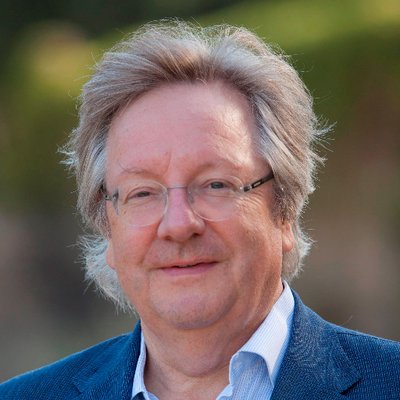
Peter Klosse comes from a family with a lot of interest in gastronomy. His parents were the
founders of Restaurant De Echoput in Hoog Soeren. In 1967 the restaurant already had one
Michelin star and in total the restaurant had a Michelin star for 36 years. Klosse's father was
one of the founders of the Alliance Gastronomique. His son Karel now has the organizational
strings in his hands.
Peter Klosse is mainly in his career looking for the roots of gastronomy. It led to the
establishment of the Academy of Gastronomy and the writing of more than fifteen books.
The focus is on the Taste Style concept on which he obtained his PhD in 2004 from the
University of Maastricht at the Faculty of Health Sciences. Peter Klosse has since been
known as a 'taste professor'. He has also been a lecturer since 2011, first in Leeuwarden
and now in Maastricht at the Hotel Management School.

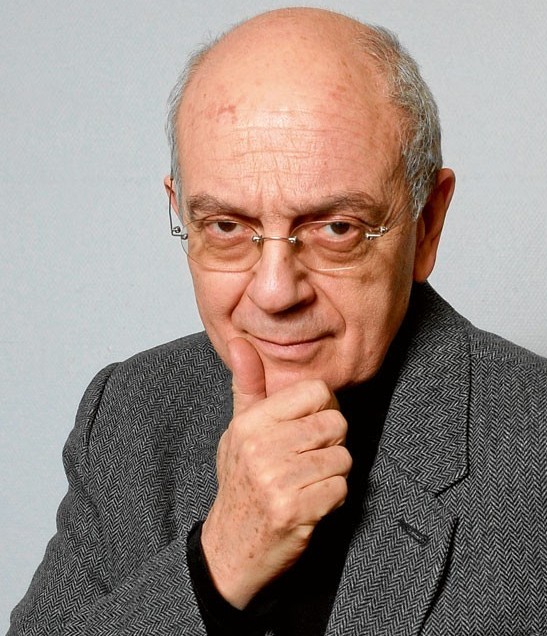
Prof. Fischler’s main area of research focuses on the comparative, social science perspective on food and nutrition, their role and determinants in societies and cultures. Specifically, his work covers the structure and function of cuisines, taste and preferences, body image and their evolution and change over time and space. Subsequently, he has also ventured in the topic of perception of risk, “scares” and crises, on comparative approaches of attitudes toward food and health across cultures; reception and perception of sensitive technologies (including novel foods); and the assessment and measurement of well-being and quality of life in a comparative perspective. on the interface between the biological and social behaviors and practices in eating; the social, symbolic and aesthetic functions of food; risk perception and food crises; the issue of obesity and body image; food behavior disorders (TCA); the uses of new technologies as well as the markers and measures pertaining to quality of life. His current research focuses on a commensality – eating together- its forms and functions, roles in culture and society, its politics as well as its possible impact on public health. The anthropology of commensality ties into the general issue of sharing food at the local and global levels. He has published numerous article an chapters on these issues as well as several books, including L’Homnivore, Du Vin, Manger. Prof. Fischler serves on many Committees and Boards such as the French Agency for Food Safety and the European Food Safety Authority.

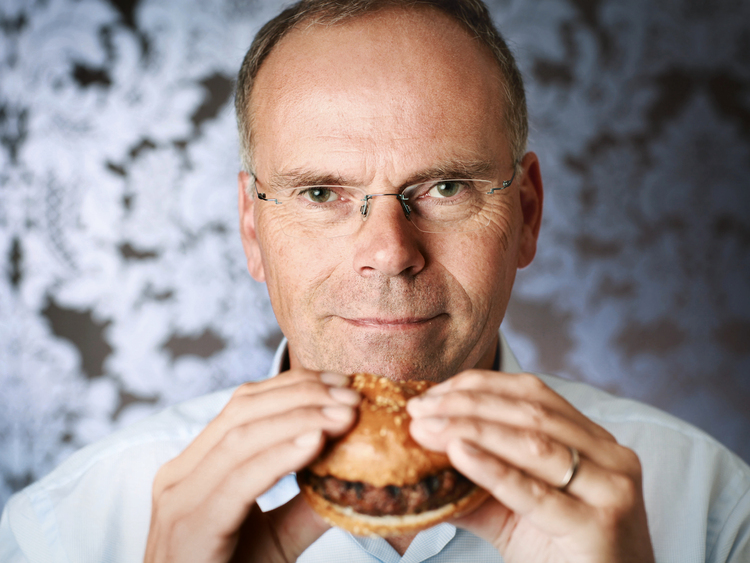
Mark Post is a Dutch pharmacologist, professor of vascular physiology at Maastricht
University and professor of angiogenesis in tissue engineering at the Technical University
Eindhoven.
In 2008 he was the first in the world to present a proof of concept for “cultured meat”.
In August 2013, the first cell-cultured hamburger was cooked and tasted live on air in
London, England. Professor Mark Post created the burger at the University of Maastricht.
However, the majority of the muscle strands were grown in media with fetal bovine serum. In
early 2015, New Harvest provided Mark’s lab with $50,000 to conduct additional research
towards a completely animal-free system for growing cultured meat.
Post joined the KNAW Interuniversity Cardiology Institute of the Netherlands before being
appointed full-time Assistant Professor in Medicine at Harvard Medical School, Boston, MA
in 1996. Five years later, he moved with his lab to Dartmouth Medical School, Hanover, NH,
and was appointed Associate Professor of Medicine and of Physiology.
In July 2002, Post returned to the Netherlands as a Professor of Vascular Physiology at
Maastricht University and Professor of Angiogenesis in Tissue Engineering at the Technical
University Eindhoven. Since January 2004 he has been Chair of Physiology and Vice Dean
of Biomedical Technology at Maastricht University. In 2016 he was selected to join the
SingularityU The Netherlands faculty due to his pioneering work in cultured meat and the
sustainability of food production.

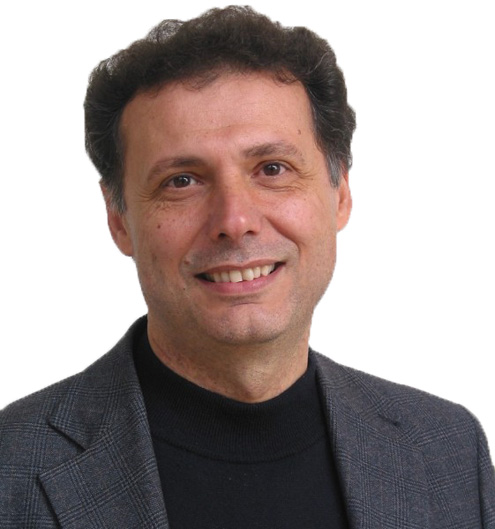
Dr. Luigi Rovati received his Electronic Engineering degree in 1989 and PhD in electronic engineering and computer science in 1994 both at the University of Pavia, Italy. From 1995-2001 he was a researcher and Assistant Professor at the Department of Electronics for the Automation at the University of Brescia. He joined the Department of Information Engineering at the University of Modena and Reggio Emilia, in 2001, where he presently is Associate Professor of Electronic Instrumentation and Measurement Science. His research activities have been towards the study and the development of low noise, highperformance, innovative instrumentations. Currently his research activity is related to the design of innovative biomedical instrumentation mainly oriented to ophthalmic diagnostic systems. Prof. Rovati has over 30 papers published in international journals, 57 presentations at international conferences with published acts, 5 book chapters and 6 industrial patents. Prof. Rovati was involved in various research projects carried out between academic and industrial partners. He is involved in a direct cooperation between the University of Modena and Reggio Emilia and the National Center For Microgravity Research, NASA-JGRC (Cleveland, USA). Moreover, he is an external consultant for the evaluation of funding proposals on research projects for I.N.T.A.S (International Association for the promotion of cooperation with scientists from the independent states of the former Soviet Union)

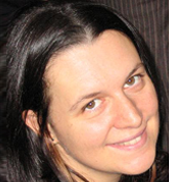

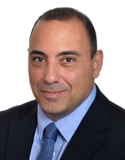
is a logistics and supply chain management expert with particular interest in food and retail supply chains. In recognition of that expertise, Michael has been a member of the Academic Committee of the Chartered Institute of Logistics and Transport (Logistics Research Network). He is also the joint Editor-in-Chief of a leading logistics journal (International Journal of Logistics: Research and Applications) and he is on the Editorial Board of six other journals. In addition, Michael's work in the field of food supply chain management is highly regarded at an international level and, subsequently, he became a member of the European Technology Platform (Food for Life, European Commission). This is a leading industry-led, public/private partnership supported by the European Commission aiming to unite various stakeholders (food industry, academics, policy makers, etc), to strengthen the European innovation process, to improve knowledge transfer and to stimulate European competitiveness across the food supply chain. Michael's work in retail supply chain management has been recognised internationally too and, in 2013, he became a Member of an Expert Panel for the European Commission (DG Research and Innovation) working with leading retailers and other academics on "Retail Innovation". His recent research interests lie in e-business and supply chain management, sustainability and supply chain management and the marketing and supply chain management interface. In 2014, Michael became a Fellow of the Chartered Institute of Logistics and Transport.

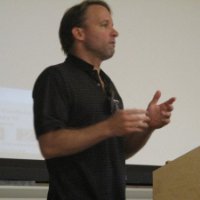
Matthew Lange’s research program is helping to define and shape a new scientific discipline
known as Food Informatics, while simultaneously enabling the engineering of a computable
infrastructure for the burgeoning Internet of Food (IoF). Part Semantic Web (SemWeb), part
Internet of Things (IoT), the IoF is the global, evolving knowledge base of food that exists as
ontologies and linked object data (LOD) stores. These IoF infrastructure components allow
anyone on the Internet to contribute what they know about food and also find answers to
their questions. As the IoF matures, terminologies used to store information in, and query
from, these repositories must be harmonized using standardized, structured vocabularies.
These terminologies, known as ontologies, enable interoperability between internet devices
as well as query by people via natural language text. In addition to enabling computational
interoperability and query--standardization of ontology terms and their axiomatic
relationships facilitates artificial intelligence via reasoning and deep learning. In connection
with engineering infrastructure for the Internet of Food, Dr. Lange’s research focuses on
these key areas:
● Building multi-ontology frameworks for combining knowledge stores across the
environment⇔agriculture⇔food⇔diet⇔health knowledge spectrum and value chain
● Working with subject matter experts to create ontologies as “formal, explicit
specifications of a shared conceptualization” within each of the above food
knowledge domains
● Developing new methods to make ontology creation, curation, and acknowledgement
easier and less technical
● Engineering of query, artificial intelligence, and software components across local
and global IoF data stores and ontologies--for semantically enabled sensors,
robotics, and knowledge applications related to food, sustainability, and health.

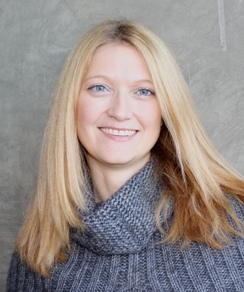
Daniela Barile’s research program focuses on bovine milk functional glycomics. Her particular research interests are in combining an understanding of the chemical and biological properties of food components with analytics and engineering to characterize, bioseparate and biointegrate bioactive compounds in foods.
In connection with this aim, her research spans three distinct but intersecting topics: i) analytical discovery of complex carbohydrates by microchip-based Mass Spectrometry, ii) development of efficient separation systems to isolate the identified carbohydrates in foods and food by-products, and iii) elucidation of the specific interaction of the carbohydrates with the human body and demonstrate the health benefits.
In addition to her work in the lab, she will access the food-grade pilot-scale filtration equipment in the Milk Process Research Lab (MPRL) to generate new carbohydrate fractions for functional studies to support the translation of these molecules as selective prebiotics. Research in the laboratory also embraces the characterization of glycosylated bioactive components in industrial by-products to enhance commodity agriculture, food processing and develop unique functional ingredients.

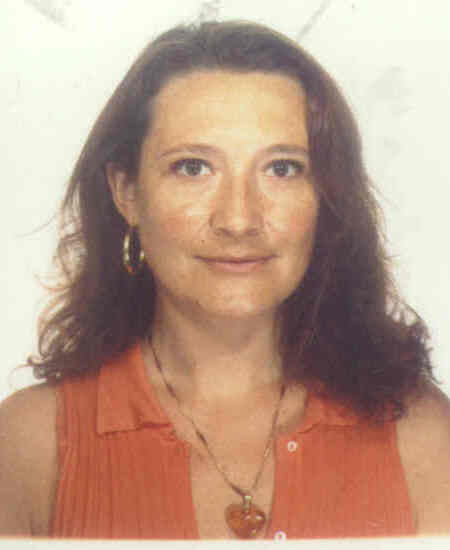
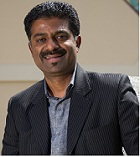
Kirthi Kalyanam is a professor in the Leavey School of Business Marketing Department, Director of the E-Commerce Initiative, the Retail Management Institute, and Internet Retailing within the Retail Management Institute as well as within the Retail Studies Program at Santa Clara University.
Dr. Kalyanam was a visiting Professor at the Graduate School of Business at Stanford University and teaches in the Stanford MMP executive program. He also served as Senior Vice President and Chief Marketing Officer of SpinCircuit Inc, a provider of supply chain integration services to the electronics industry.
He received his Ph.D. in business administration from the Krannert School of Management, Purdue University. Dr. Kalyanam's areas of expertise include Internet Marketing, Customer Centric Retailing, Multi-Channel Marketing and Database Marketing. He has various published works that have been featured in top journals including Harvard Business Review,Marketing Science, The Journal of Marketing Research, Marketing Letters, Journal of the Academy of Marketing Science, Journal of Retailing and Journal of Interactive Marketing.
Dr. Kalyanam is a dynamic speaker and leads executive seminars on Internet Marketing, The Wal*Mart Effect in Retailing and Multi-Channel Marketing. He has trained executives in over 10 countries on Internet and Multi channel marketing and retailing. His clients have included ABN-AMRO (Netherlands), ABP (Netherlands), Acuson, Army and Air force Exchange Service (AAFES), The American Video Duplicators Association, Cisco Systems, CSM (Netherlands), Daehan Oil Corporation (S. Korea), Enabler (Portugal) Gap, Hewlett Packard, Infotech (Mexico), IBM, Overstock.com, Indian School of Business, Siemens, Wipro (India), Thai Management Association & Trimble Navigation. He has co-produced the Internet Retailing Bootcamps with Shop.org and has served as an advisor to the State of Retailing Online (SORO) research study.
Dr. Kalyanam advises early stage startups on capturing & winning emerging markets.
He has advised or consulted for Comscore Networks, Propel Corporation, Xambala, Kiwi Networks, Symphoniq Corp, and Boorah. He serves as a board advisor and consultant to the Commander of AAFES, a $9B retailer ranking #36 in the Top 100 Retailers.
